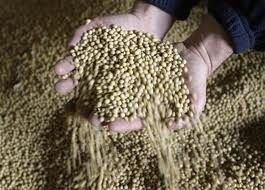Soy Not Good For All

New research data proves soy isoflavone supplements does little to ease menopausal symptoms or help bone loss in women.
The study, published in the "Archives of Internal Medicine" and funded by U.S. National Institutes of Health, showed that women who took soy supplements every day for two years did not have any significant improvement in their symptoms compared with those who took a soy-free placebo pill, in fact they suffered more hot flashes by the end of the study.
With the new outcome on soy supplements, there are no safe alternatives left for women to ease their menopausal bouts or sustain appropriate bone densities. The risks involved in hormone replacement therapy had triggered women to look for alternative solutions in soy isoflavone pills.
An earlier study in 2002 by the Women's Health Initiative (WHI) on hormone therapy had reported heart and cancer risks with estrogens and progestin use. Since then, no clear cut management of menopause and related complications have found any conclusive solution.
The soy tablets, at about 25 to 50 cents per day have been regarded as a cheaper alternative, which now needs to be re-evaluated. A month's supply could roughly be estimated at $7-$10.
Lead researcher, Silvina Levis, M.D. of the Miami Veterans Affairs Healthcare System and Miller School of Medicine, University of Miami, conducted a randomized controlled trial from July 2004 to March 2009 to determine the effectiveness of soy isoflavone tablets in preventing bone loss and other menopausal symptoms.
Dr. Levis noted, "What prompted us to do this study was in the wake of WHI when many of our patients stopped using hormone therapy.
A total of 248 women participated in the study for two years. The follow up resulted in no significant differences between those who were prescribed soy isoflavone and those in the placebo group. Checks were made to determine changes in bone mineral density of the spine (-2 percent vs. -2.3 percent), the total hip (-1.2 percent vs. -1.4 percent) or the femoral neck (-2.2 percent vs. -2.1 percent), respectively.
The authors concluded, "Because of concerns regarding the risk of estrogens, a need exists for alternative interventions that could provide the beneficial effects of estrogens in bone and menopausal symptoms without the adverse effects on breast and cardiovascular health." However, "We found that our population of women in the first five years of menopause, on average, had low rates of bone loss, and that 200 mg of soy isoflavone tablets taken once daily does not prevent bone loss or reduce bone turnover or menopausal symptoms."
Study results also stated that women taking soy showed no improvement regarding night sweats, insomnia, loss of libido or vaginal dryness, compared with the placebo group.
Dr. Levis warned, "Women should be reconsidering taking these types of products for menopausal health and said, "We didn't see any objective clinical benefit for soy isoflavone supplements. We actually saw more constipation, bloating and hot flashes in the women taking soy."
Medications including certain anti-depressants may provide relief for menopause symptoms in some women, Levis said. Bone health could be maintained by the usual use of calcium and Vitamin-D supplements along with regular physical activity.
Dr. Deborah Grady, Professor of Medicine and Epidemiology at the University of California, San Francisco, who co-wrote a commentary, noted that the search for a safe alternative to hormone replacement therapy continues, with some menopausal women finding their symptoms are relieved by the class of antidepressants known as SSRIs. Other researchers have recommended yoga and other relaxation techniques as complementary therapies.
As a final inference Dr. Grady and co-author said, "Perhaps effort should be directed away from the hope of a one-size-fits all therapy for menopausal symptoms toward using existing treatments to target the symptoms that disturb patients most."
© Copyright IBTimes 2024. All rights reserved.





















